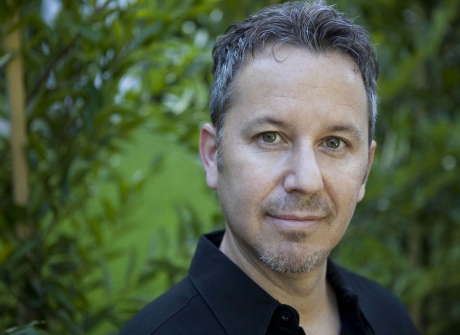
Everyone has movies from their childhood they hold dear to their heart. Just take Fandomania’s own Lauren for example. Each week she lets us know why she constantly quotes Molly Ringwald or why she loves Gremlins. This past week I got to interview a man who co-wrote one of my all-time favorite movies, Don’t Tell Mom the Babysitter’s Dead — Neil Landau. Oscar winners were never my preference growing up because they rarely dived into the mind of the youth. This movie did in a dark and twisted way, and I loved it so much that we rented it every other weekend when I wasn’t pestering my mom to get Son-In-Law or Milo & Otis.
It was a cold Saturday in Hollywood and Neil was doing a Q&A about mystery and suspense at the Samuel French Bookshop on Sunset. I had a show to get to that evening, but I couldn’t pass up a chance to chat with a man who played a part in my younger years. He started writing when he was 7 years old to escape reality after his father passed away when he was just 6 1/2. Then when he was a teen, Raiders of the Lost Ark cemented his path: he had to write movies for a living.
He’s like any other screenwriter and has people he looks up to like Moneyball‘s Aaron Sorkin, director of Up in the Air Jason Reitman and, of course, funnyman Judd Apatow, just to name a few. And while Neil knows writing a trendy series like Twilight would be a moneymaker, he’s content with his 3D animated movie that’s been a hit around the globe, but won’t make its US debut until summer 2013.
When he’s not writing movies, he’s of course writing books. 101 Things I Learned in Film School and The Screenwriter’s Roadmap: 21 Ways to Jumpstart Your Story both took about a year each to create, but that’s not scaring him off from the author world. He’s working on a new one that will focus on writing, creating, and sustaining episodic television. The Showrunner’s Roadmap should be out September 2013.
That’s not all I came to know about Neil Landau though. The rest of the interview dives deeper into his work as an instructor, his book writing process, the idea of a Don’t Tell Mom remake and much more.
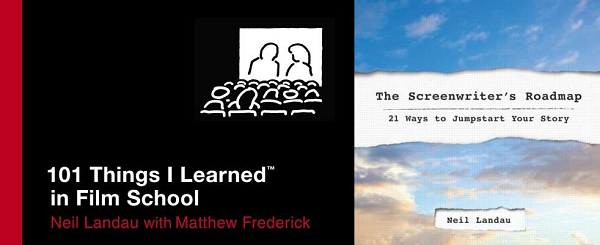
Kendra Beltran: You said you were an instructor for USC and UCLA. Do you use your books as the course books?
Neil Landau: I suggest that they get the book, but I teach screenwriting workshops, so the classes are very small, and we work on their scripts. They come in with an idea, I try and help them develop it and expand on it, dig deeper into the characters. So we generally don’t assign a text book in that kind of class because they don’t have time. And they don’t take tests. They’re researching their own projects and writing.
Kendra: In 101 Things I Learned in Film School, were those all firsthand experiences or did you learn from others mistakes?
Neil: Well, the first book (101 Things I Learned in Film School), that was my first book. It came out three years ago. That book’s become very, very, it’s still on the best seller list and it’s been translated in seven languages. So that book’s become really popular for a lot of introduction information. It talks a lot about storytelling, but this book is a lot more, it’s kind of like… That one’s the appetizer and this one’s (The Screenwriters Roadmap: 21 Ways to Jumpstart Your Story) the main course. The new book, it goes into a lot more depth of everything.
But both, it’s a lot of first hand stuff. What I was hired to write that book by the publisher, it wasn’t my idea, I put out emails to hundreds of people, both current students, past students, professional colleagues and said I’m doing this book and I have to come with 101 things that are the most important things you’d learn in film school. I asked everybody what would be the three that come to mind. I got back hundreds of responses. So then I went through a lot of those. I originally was contracted to write 150 of them but I had like 3-400 and I had to keep kind of going, “These are kind of the same, these are probably not that important or they’re probably too advanced.” Then there were ones that I felt like there was a common denominator for a lot of people. So that’s how I did it.
Kendra: I noticed you worked a lot in the ’90s and I want to know what you see personally as some major changes in entertainment from then till now.
Neil: Well, the biggest change is distribution of entertainment because in the ’90s we had VHS and then it was just getting into DVDs, and that was a huge business for the studios because they could produce a movie that would play primarily in the US and Canada, that would then, if it did okay in theaters and it made its money back, would definitely get into a lot of profits in the home rental market. Well, that’s dried up. As you know, Blockbusters have closed down. A lot of people aren’t so much renting movies anymore, so that revenue stream is gone. There’s a lot more piracy now so it’s much harder now to get people into actual movie theaters. There’s a lot of sites you can stream stuff, not necessarily for free. Ideally you’d still have to pay. But Redbox you can rent them for a dollar. Domestically they aren’t making a lot of money.
So one of the biggest changes for a major studio is to make and release a movie right now is that it has to be able to play all over the world. It has to be a global product. Which means it has to be very visual, not rely on dialogue and on very American kind of humor, for example. Those kinds of comedies are much tougher to sell abroad. I mean something like Bridesmaids plays well all over the world because people know what it’s like to get married, the comedy’s broad enough. Like if you watch Bridesmaids with no sound on you’d pretty much be able to follow the story.
So that’s a big change. Movies have to be events to get someone to go out. It has to feel like, I have to see it right away while it’s still in theater or I want to see it on a big screen with great sound and maybe it’s in 3D, or you’re going to wait and watch it at home, and if you’re going to watch it at home, the people who make the movies who invested are going to make less money than if you go out and buy a ticket, popcorn and candy.
Kendra: With so many reboots and revamps are you worried or excited at the thought of somebody bringing back Don’t Tell Mom the Babysitter’s Dead?
Neil: Well, Dreamworks is developing a remake right now. They bought the rights and they are developing it with another writer which is fine with me. I don’t really want to be involved with it. I mean, I’ll get what’s called a passive royalty if it gets made, so I definitely want it to get made because it’ll be profitable to me. But yeah, it will happen. It seems like this coming year it’ll finally move into production.
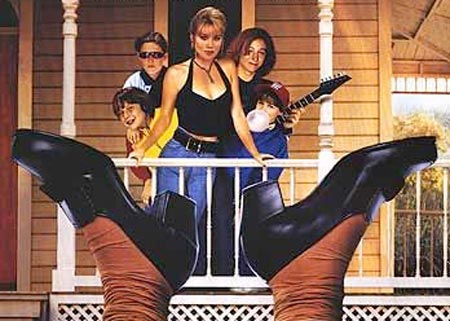
Kendra: Your talk today is all about suspense and mystery, so what are some clichés in those genres that you’re tired of?
Neil: That’s a good question; I’d have to really think about that. I can’t even necessarily think of a kind of cliché in a mystery story. There’s always the, somebody dies and you’re trying to figure out all the possible suspects of who may have done it, but for most of the movies that have been coming out more recently, they’ve been much more sophisticated.
Kendra: Being the seasoned writer that you are, what are your three favorite words?
Neil: Well, inspiration, mystery, and suspense, and emotion. You have to put emotion in there. I know that’s four words. I think mystery and suspense sort of go together. Emotion is really important because I do a lot of consulting. I’ve been consulting on a lot of miniseries right now. One of them is going to be about Catherine the Great and the emotion — it’s all about her life, but the emotional internal life is not there right now. Most of the time what I do when I’m hired to script doctor is I want to know what the characters are feeling and why. What they’re afraid of and to dig into the emotion. I think that’s super important. That’s the currency to great story telling.
Kendra: Is there a movie that you’ll forever wish you wrote?
Neil: American Beauty, I really do love that movie. Argo, I saw that recently and really liked that a lot. That was the last one I saw where I was like, damn. It was a really difficult movie to write because it’s this incredibly taut thriller with extremely high stakes, and then it’s really funny. Also more recently, Little Miss Sunshine. I would’ve loved to have written that. That’s kind of more my style. I like dramedy. I like having real emotional stakes but also humor that comes out of it. Both American Beauty and Little Miss Sunshine are like dark comedies, and I wrote one that hopefully will get made next year. We’re looking for a cast right now. It’s a dramedy with a lot of humor, but it has a lot of darkness. So those are the kinds of things that I’m interested in writing.
Kendra: What is some advice you have for aspiring screenwriters?
Neil: Well, the things that I always say that are important… One of the big benefits of going to film school is meeting people and having a chance to really practice your craft. Plus, you’re around other people who will both help and both inspire you. Also being competitive, it gets you to raise your game. One of the best things is that when you’re going to film school you have access to internships at studios, networks, production companies and that’s extremely valuable because when you’re out of school it’s really hard to get those jobs where you’re on the inside something like that.
I did my internship at MTM Enterprises where I interned on a show called Hill Street Blues, which at the time was a one hour drama, cop show that was like no other. I just spent so much time observing while sitting on set. I would read the script, go to the dailies, go to editing sessions, and just being able to learn and observe and when you’re interning you get those opportunities. When you’re not in film school it’s really hard to get those kinds of jobs because they tend to go to students who are.
That’s one and for writers, you just need to keep writing. You also need to know when to let go of a script, maybe that’s not the one. Just because you wrote a script, doesn’t mean you’re going to sell it. So start writing another one and another one. Eventually if you have talent and you’re tenacious, and you have some luck… I think that kind of passion and enthusiasm is required to get a movie made. Somebody has to fall in love with it. So for the writer you need to just try and be one of those people who create those scripts.



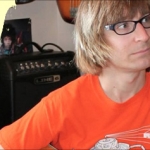

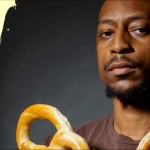

RT @Fandomania: Interview with Author/Screenwriter Neil Landau http://t.co/IVX9n1tW